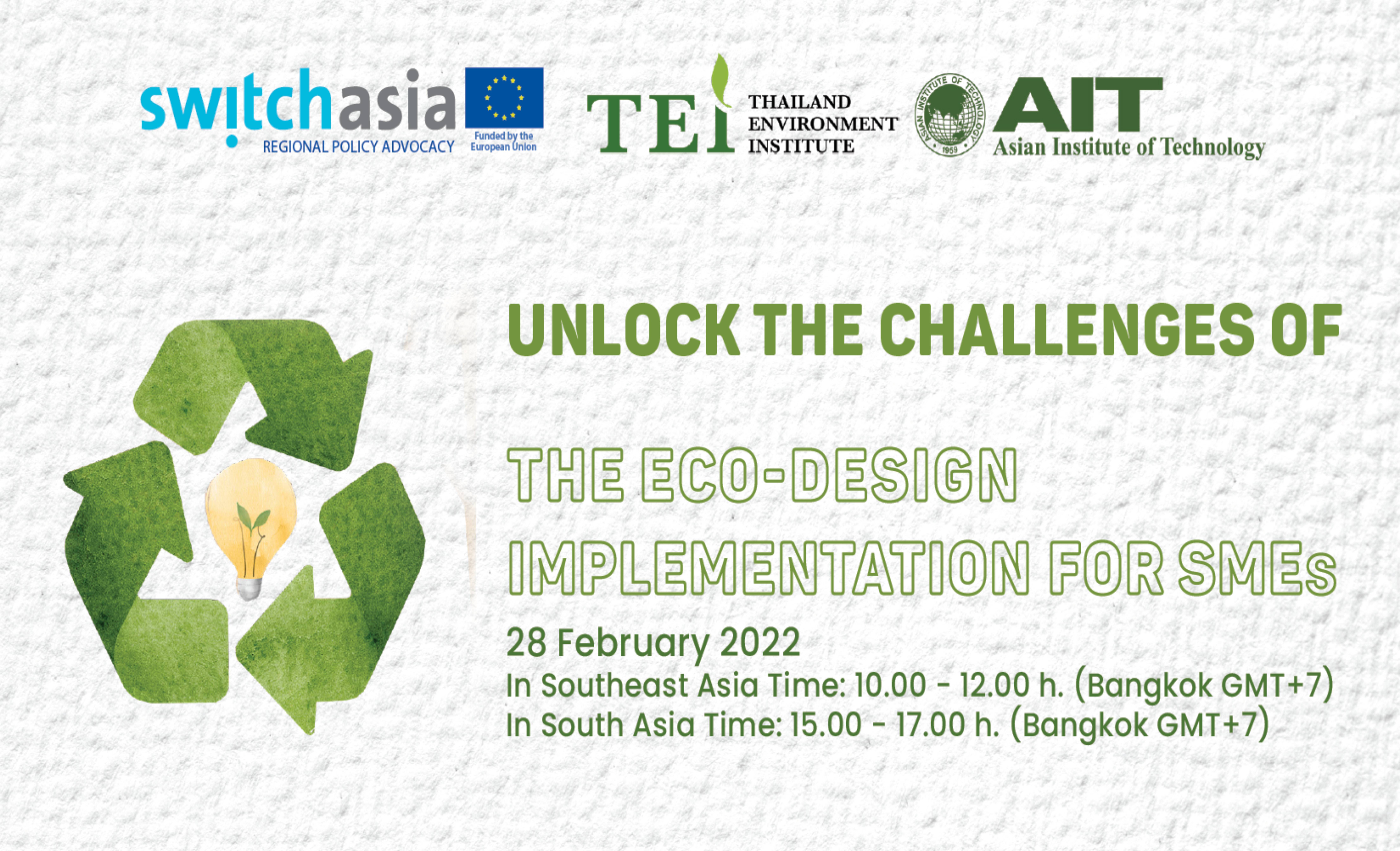
WHEN: 28 February 2022 I TIME: 10:00 - 12:00 (Bangkok Time) I REGISTER Here
Background
By 2030, the global middle-class population is expected to reach 5.3 billion, out of which, most of this growth will be in Asia. China and India together will represent 66 percent of the global middle-class population and 59 percent of middle-class consumption. While the expanding middle-class could be a driver for economic development, changes in consumer behaviours and consumption patterns are expected to increase in demand for food, water, and energy by approximately 35, 40, and 50 percent respectively by 2030 (SWITCH-Asia and TEI, 2020). The Eco-design or reduce by design, as an overall principle, can be applied in the early stages of design, leading to the realisation of products and services using fewer materials per unit of production, and/or during their use.
Objectives
1. Advocate existing government’s policies and financial mechanisms on promoting Eco-design to SMEs
2. Brainstorm recommendations and way forwards to advance Eco-design approaches in SMEs
Target audience: SMEs in Asia; Government agencies responsible for promoting SMEs and Eco-Design; Representatives from financial institutions.



